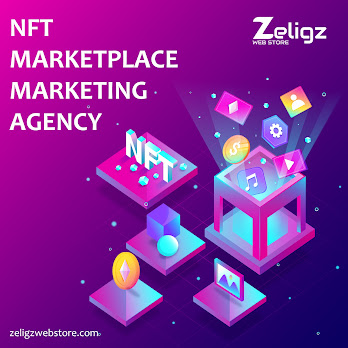What are the use cases of Smart Contract Development
In the era, when smart contracts are being utilized in enhancing different processes in several sectors, Zeligz Webstore is the Best Smart Contract Development company that are providing Smart Contract Development Services to empower your business with automation.
Use cases of Smart Contract Development:Smart contracts can be applied in a wide range of industries, including healthcare, supply chain management, and financial services. Here are a few examples:Data Management:
Employees in every company are required to maintain track of their communications, texts, and transactions. Those in the procurement department, for example, must keep track of purchase orders, while those in the human resources department must keep track of interviews, employee health data, and complaints. Employees typically preserve these records on paper or manually enter data into machines, which are then stored in the cloud or on company servers.Supply Chain Management:
The administration of the movement of commodities is referred to as supply chain management, and it entails the interchange and recording of data and physical items. Supply chain management, like data management, is hampered by many firms' reliance on outdated paper-based systems. Throughout the supply chain, many documents and items are routed via many channels for approval, raising the risk of loss and manipulation.Healthcare:
By eliminating paper-based systems and insecure data servers, blockchain technology, and smart contracts save time and money for the medical business, similar to data and supply chain management. Companies use blockchain to store encrypted patient health records on the network.
Through asymmetric encryption, smart contracts can automate the storage and transmission of health records across institutions and departments in a secure and privacy-friendly manner.Insurance:
Insurance is one of the businesses that use smart contracts the most. The official agreement between the insurance company and the insured person is the most crucial component to take note of when a person applies for insurance. The contract lays out all of the terms and conditions, as well as the types of coverage accessible to the insured.
These terms and conditions can be encoded in smart contracts, which can be distributed throughout the blockchain network. To make the best selections, the smart contract will need enough data throughout the setup process, such as driving records for vehicle insurance and health records for medical insurance.Government administration:
The lack of openness and effectiveness of various government organizations is to blame for the low trust factor. By adopting the key ideals of decentralization, transparency, and security in the public sector and state affairs, blockchain technology eliminates this barrier of mistrust and inefficiencies. Many governments have implemented or are using smart contracts to automate procedures in order to improve efficiency, minimize costs, and reduce corruption.Property ownership:
Smart contracts can also help with property ownership transfers. Several countries have already deployed blockchain-based pilot programs to register property titles, including Sweden, Russia, and Ghana.


Comments
Post a Comment